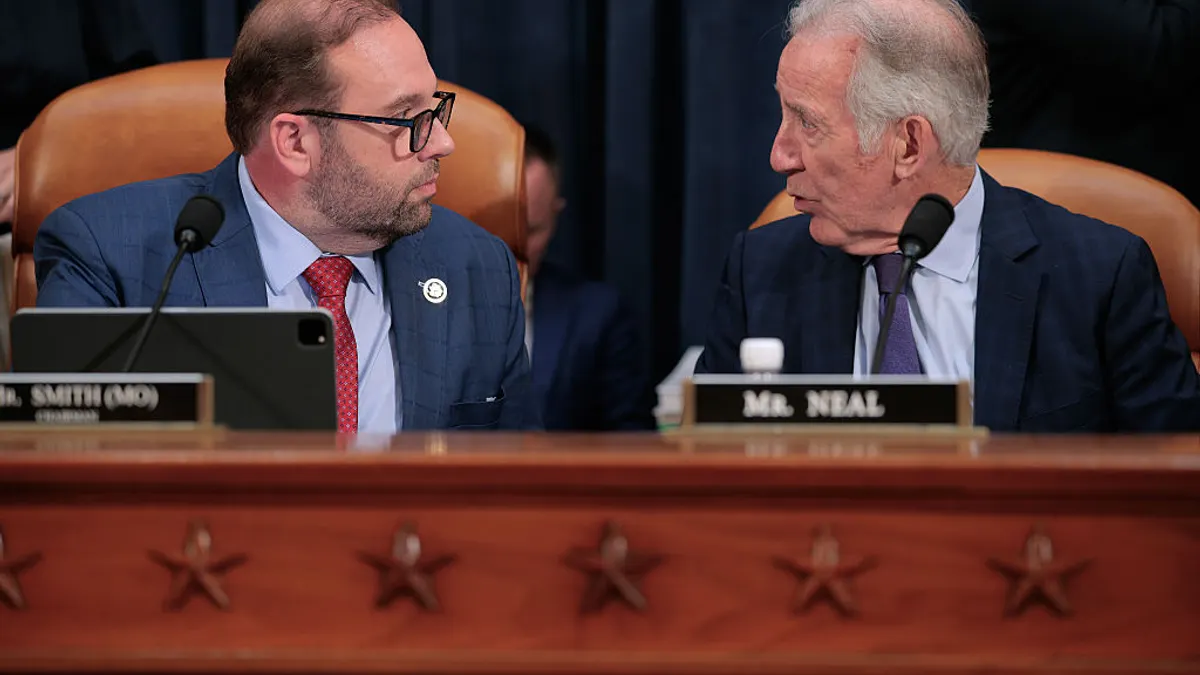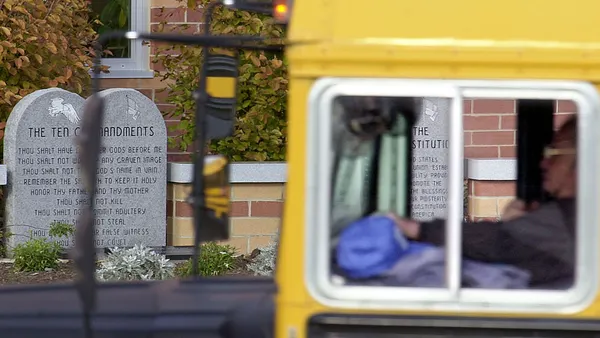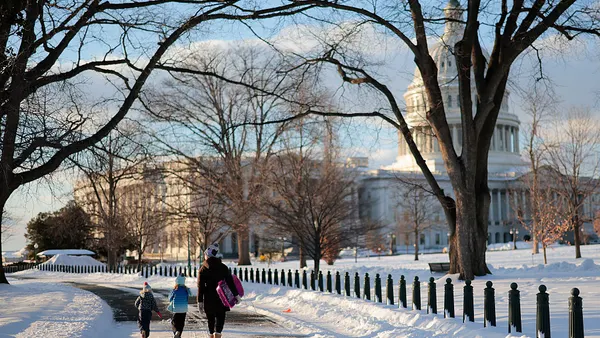A Republican-sponsored proposal to create a national private school choice tax incentive gained approval along party lines in the House Ways and Means Committee early Wednesday morning after a marathon overnight markup session.
The momentum to create a national private school choice program comes as states are increasingly approving their own tax credit scholarships, education savings accounts and other choice initiatives. Supporters say the financial incentives will give students and families more educational options, while opponents argue the programs will divert much-needed funding away from the public schools that most students attend.
The Republican-backed plan, the Educational Choice for Children Act, was included in the massive tax package now moving through Congress.
"Expanding President Trump’s tax cuts is about preserving the American Dream," said Sen. Bill Cassidy, R-La., the bill's sponsor and chair of the Senate Health, Education, Labor and Pensions Committee, in a Monday statement. "Giving parents the ability to choose the best education for their child makes the dream possible.”
Under the plan, donors could make charitable contributions toward tuition costs at private and religious schools and receive a dollar-for-dollar tax break for their contributions. A scholarship-granting organization would manage the contributions and distribute them to participating families to use toward education expenses.
The total credits are capped at $5 billion per year from 2026 through 2029. It would be the first federally funded private school tax credit program available across the country. Only one federally sponsored voucher program exists, and it's for a limited number of students in the District of Columbia.
During the Ways and Means Committee markup, Rep. Terri Sewell, D-Ala., criticized the proposal as an "unprecedented effort to use public money for private schools."
Rep. Nicole Malliotakis, R-N.Y., however, said the scholarships would go to students who could benefit the most from access to private schools. "We're talking about poor children, giving them school choice, giving them access to education," she said.
The tax credit would also apply for expenses toward instructional materials, tutoring, fees for assessments, therapies for students with disabilities, and dual enrollment for private and public school students.
Several public school supporters decried the tax change as diverting funding and support away from public schools.
"Voucher schemes don’t improve student outcomes — they undermine opportunities for students, especially those from rural communities, students with disabilities, and students of color," said Denise Forte, president and CEO of nonprofit EdTrust, in a statement Tuesday. EdTrust works with school systems to close opportunity gaps for marginalized students.
The full tax bill — President Donald Trump's "One, Big, Beautiful Bill" — aims to make permanent tax cuts enacted in 2017 under the first Trump administration. It is part of a larger budget reconciliation package to reduce taxes and offset costs of new priorities under the new Trump administration. The proposal, however, has a long road ahead in Congress before final approval.
The House Education and Workforce Committee on April 29 approved an education portion of the proposal that would bring significant changes to the federal student loan system. And the House Energy and Commerce Committee and Agriculture Committee also debated sections of the tax proposal this week.
The Ways and Means’ sweeping tax bill now heads to the House Budget Committee, which plans to begin combining legislative proposals from across the chamber into a single package on Friday.
The House’s massive legislative package would also need to be approved by the Senate to become law. Sen. Ron Johnson, a Republican from Wisconsin, recently said he opposes the bill because it doesn’t reduce spending enough, Politico reported.
The Committee for a Responsible Federal Budget estimated Tuesday that the Ways and Means’ legislative package could add up to $5.3 trillion to the federal deficit.
Natalie Schwartz, senior editor at Higher Ed Dive, contributed to this article.















